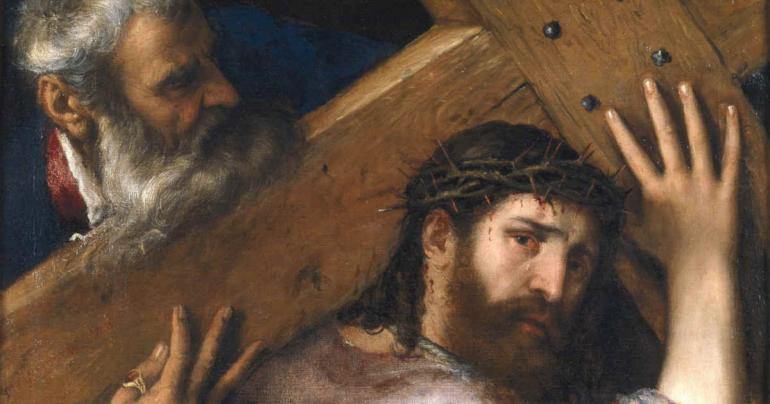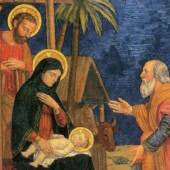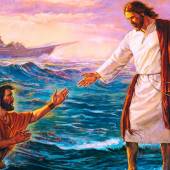Take up crosses and follow Jesus

July 2, Sunday of the 13th week in Ordinary Time
Daily Readings: Genesis 1st Reading: 2 kings 4:8-11, 14-16a; 2nd Reading: Rome 6:3-4, 8-11; Gospel: Matthew 10:37-42
The society in which we live today tends to expect immediate results and rewards. What is my gain? is the question that comes from a person when s/he is entrusted with some responsibility. Common belief is that nothing will go in vain. The readings of today assure us that God rewards everyone in due time/season. But everything comes with a price tag. A prophet is expected to be a person of God. One has to die with Christ in order to rise with him.
Jesus Christ should be the first and only lover for every follower of Christ. All of these calls for greater sacrifice from the part of the one who dares to walk the path of holiness. Compared to the greatness of the reward, namely ‘eternal life,’ the sacrifices we make are momentary. It is a question of choice between eternity and transitory. It is a question of choosing God or Mammon.
The First Reading from the Second Book of Kings presents an event that happened in the life of Prophet Elisha. A childless, wealthy couple become the hosts of the prophet as they recognize him to be a holy man of God. The people believe that holy people have easy access to God. They provide Elisha with a comfortable chamber for his rest and prayer. Elisha promises the wealthy woman the gift of a child. Her hospitality and her ability to recognize a holy man of God in Elisha are rightly rewarded with God’s blessings in the form of a child.
Jesus says in Matt 10:41, "Whoever welcomes a prophet in the name of a prophet will receive a prophet's reward; and whoever welcomes a righteous person in the name of a righteous person will receive the reward of the righteous". There is no greater reward than a child in the arms of a woman. A childless Shunemite woman knows this more than any of us.
The Responsorial Psalm proclaims the steadfast love and faithfulness of God. This Psalm is primarily a liturgical lament to urge God to rescue His people. The Psalmist recalls God’s covenant with His chosen one, his servant David, and his everlasting dynasty. The people of Israel exult in God’s name, and they extol His righteousness. The author recalls God’s promise about the one who is to come: "I have set the crown on one who is mighty, I have exalted one chosen from the people" (v. 19).
The Second Reading from Paul’s Letter to the Romans reminds the believers in Rome that all who have been baptized into Christ are also baptized into his death. It is beyond doubt that all of us who die with Christ will also rise and walk in the newness of life. We will also live with Christ. Baptism is a ritual that brings about transformation. It brings a person closer to the realm of God. Thus Paul establishes the fact that death can no longer have dominion over him.
Jesus’ death is aimed at wiping away the sins of sinful humanity. The candidates for Baptism imitate the ritual of Jesus’ death, burial, and resurrection. That is, they die to sin and death. They descend into the tomb and are buried with Jesus. But they will rise with him to a new life. The believers leave one world and enter another world where God lives.
The Gospel Reading is taken from the Missionary Discourse of Jesus. The family was the central social institution in the ancient Mediterranean world. Families were usually very large. The ideal marriage partner was one’s own first cousin, as it guaranteed a close-knit family with tighter bonds. To marry an outsider was unthinkable, and to sever all family ties was equal to committing suicide. The care one extends to relatives is called "steadfast loving kindness".
It is in this context that Jesus asks his followers to love him more than the members of the family. There is something more to come. They have to take up their crosses and follow Jesus. A much harder expectation of Jesus comes at the end in the form of readiness to lose one’s life in order to find it later. Someone who is ready to love Jesus more than his or her family members will have no qualms about carrying his or her cross, following him, and also dying for him.
There is a reward for everything. It is not certainly this-worldly but rather other-worldly. Blessed is the one who is able to identify it and make the right choice at the right time.
Radio Veritas Asia (RVA), a media platform of the Catholic Church, aims to share Christ. RVA started in 1969 as a continental Catholic radio station to serve Asian countries in their respective local language, thus earning the tag “the Voice of Asian Christianity.” Responding to the emerging context, RVA embraced media platforms to connect with the global Asian audience via its 21 language websites and various social media platforms.












